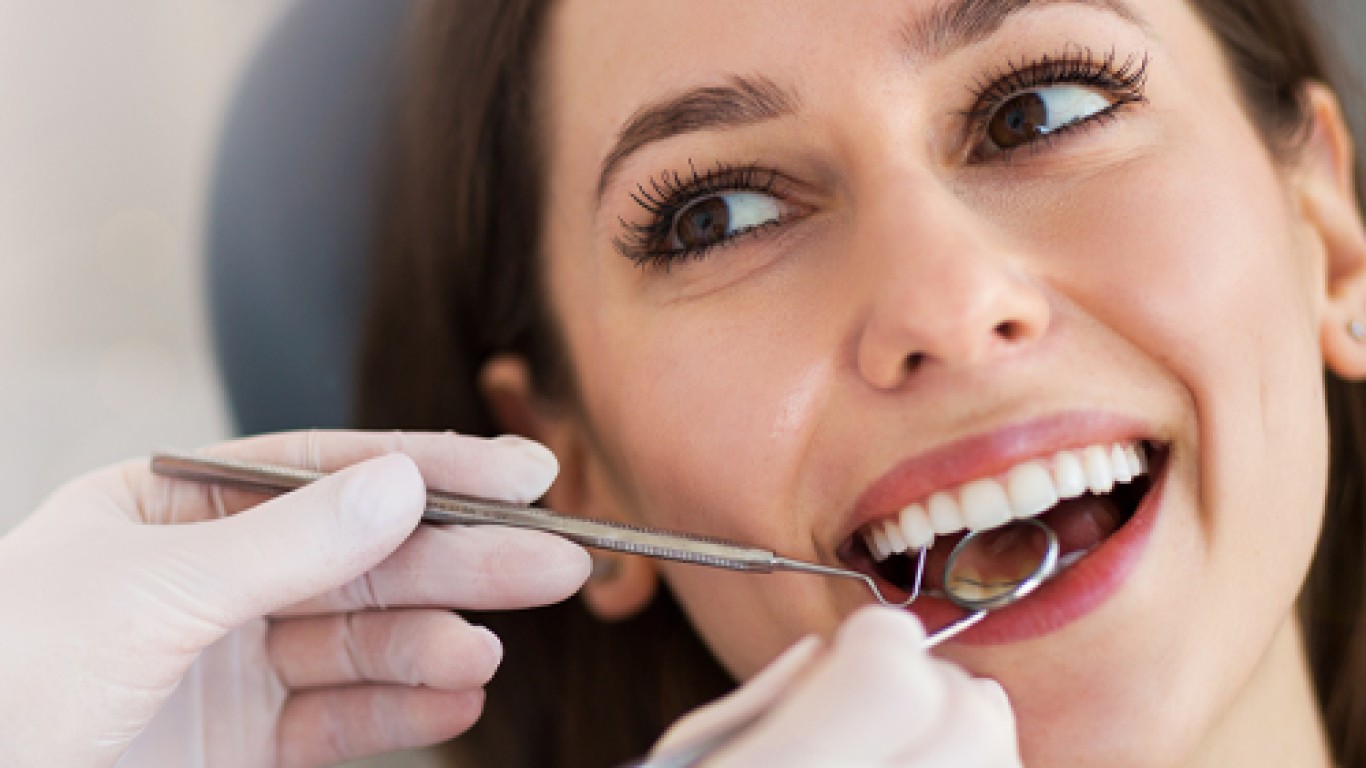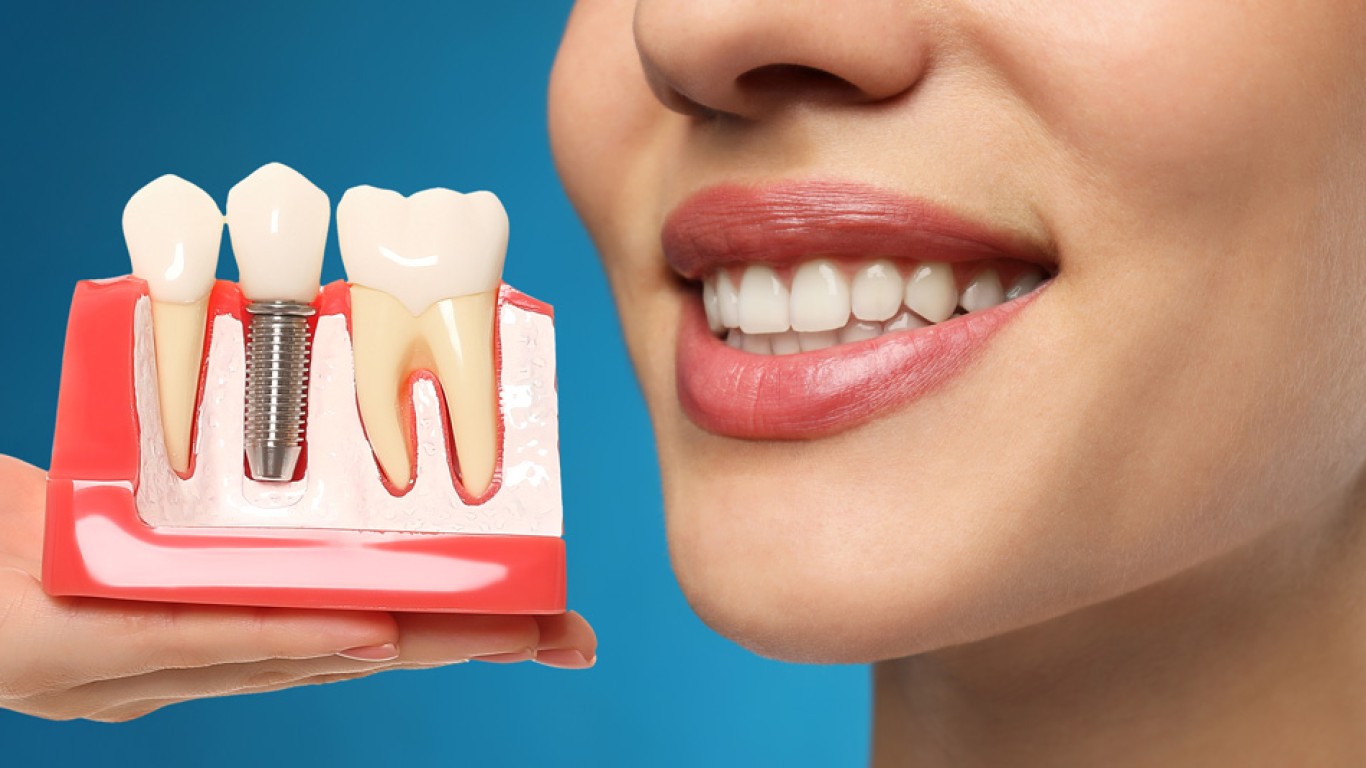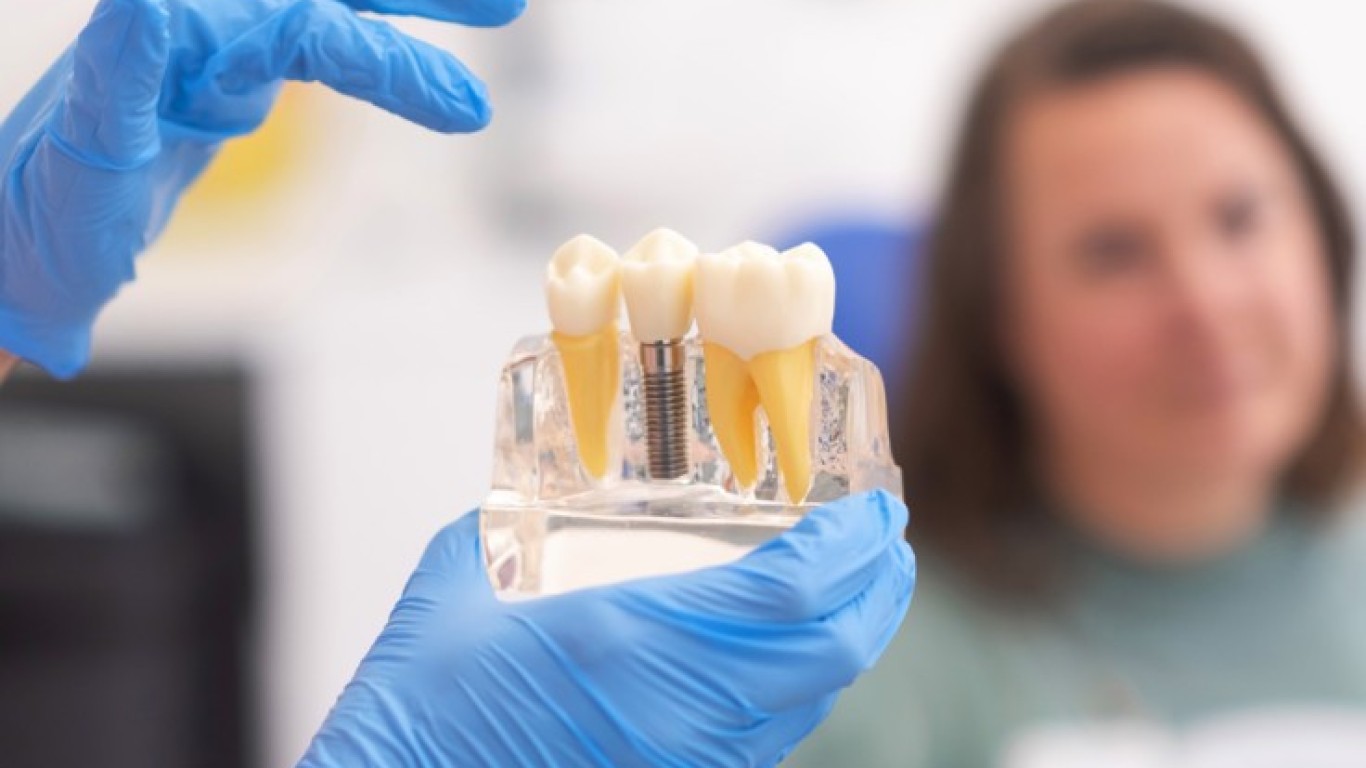Dental care is crucial at every age, but after 50, it often becomes a top priority. Missing teeth, discomfort, and confidence issues can all affect quality of life. Fortunately, Dental implants offer a reliable and natural-looking solution, even for older patients. In this guide, we explore why more individuals over 50 are turning to dental implants for lasting dental restoration.
What Are Dental Implants Exactly?
Dental implants are titanium posts placed into the jawbone to support replacement teeth. These act as secure anchors for crowns, bridges, or dentures. Unlike removable options, implants are permanent and fuse naturally with the bone. Additionally, they preserve jaw structure and prevent bone loss. Because of these features, they’re often considered the gold standard in tooth replacement.
Are You Too Old for Dental Implants?
Age alone isn’t a barrier. In fact, many patients in their 50s, 60s, and even 70s get dental implants successfully. What matters more is overall health, bone density, and oral hygiene. If your gums are healthy and your bone can support an implant, you’re likely a strong candidate. Additionally, many clinics offer bone grafting if jawbone volume is limited.
Benefits of Dental Implants After 50
There are many reasons dental implants are a top choice after 50. Firstly, they restore chewing ability, so you can enjoy meals again. Secondly, they help maintain facial structure, avoiding the “sunken” look from missing teeth. Thirdly, they’re low maintenance and long-lasting. Lastly, they can improve self-esteem by restoring a natural-looking smile.
Comparing Implants to Dentures in Older Patients
Dentures are often the first option considered by older adults. However, they may slip or cause gum irritation. In contrast, dental implants offer a secure, fixed solution. They don’t move, don’t require adhesives, and feel more like real teeth. Consequently, many patients switch to implants after years of denture discomfort.
How Long Do They Last?
One of the main advantages of dental implants is their longevity. With proper care, implants can last 20 years or more. Some patients even keep them for life. Regular brushing, flossing, and dental check-ups are essential. Unlike bridges or dentures, implants don’t need regular replacement or adjustment.

Are Dental Implants Safe for Older Adults?
Yes, they are safe when performed by experienced professionals. Many patients over 50 undergo implant surgery without complications. As with any procedure, proper planning and a health assessment are essential. Additionally, technology like 3D imaging helps ensure precision. Overall, implant surgery is minimally invasive and well-tolerated at any age.
What to Expect During the Implant Process
The implant journey starts with a consultation and dental scan. Next, the implant post is inserted under local anaesthesia. Healing time varies but often takes a few months. Once healed, the final crown is attached. Most procedures are done in stages, allowing for proper integration and recovery. Afterward, your new smile looks and feels completely natural.
Costs of Dental Implants After 50
Dental implants can seem costly initially. In the UK, a single implant may cost £2,000 or more. However, clinics in Turkey offer complete packages starting at around £400 - £800 per tooth. These usually include consultations, surgery, and follow-up. Moreover, the long-term value makes implants cost-effective over time, especially since replacements are rare.
Why Turkey Is Popular for Dental Implants
Many over-50s travel to Turkey for this procedure. The country offers skilled dentists, modern clinics, and affordable prices. Istanbul is a leading hub, providing complete dental tourism services. Packages often include accommodation, airport transfers, and English-speaking staff. Additionally, high treatment standards match or exceed those found in the UK or Europe.
How to Prepare for Dental Implants
Preparation involves a dental examination, X-rays, and sometimes a bone scan. Stop smoking if possible, as it affects healing. Also, inform your surgeon about any medications or health issues. Maintain good oral hygiene before and after surgery. Following these steps helps ensure the best possible outcome from your dental implants.
Maintaining Dental Implants Over Time
Daily brushing and flossing are essential. Visit your dentist twice a year for cleanings and check-ups. Avoid biting very hard items that could damage the crown. Furthermore, follow any post-op advice given by your clinic. With proper care, your dental implants will continue to function beautifully for decades.
Common Concerns Addressed
Some people worry implants are painful or difficult to maintain. In reality, the procedure involves minimal discomfort. Local anaesthesia makes the process smooth and manageable. Post-surgery soreness is usually mild. As for maintenance, it’s no more demanding than caring for natural teeth. With support from your dentist, any concerns can be easily managed.
Signs You’re Ready for Dental Implants
You might be ready if you have missing teeth, healthy gums, and strong bones. If you’re tired of dentures or bridges, implants offer a better alternative. Additionally, if you’re in your 50s and looking for a durable, hassle-free solution, this solution is worth exploring.
Conclusion
Getting dental implants after 50 is not just possible—it’s often the best solution. They restore bite strength, improve facial aesthetics, and boost self-confidence. Age is not a limitation, and many older patients report life-changing results. Whether you want to smile again without worry or enjoy food without discomfort, Dental Implants can help.
For more information on dental implants and to book a consultation visit the ACIBADEM Beauty Center Dental Implant webpage.
Frequently Asked Questions
No. Many people in their 50s, 60s, and 70s get Dental Implants successfully with excellent results.
Yes, they are designed to mimic the feel and function of natural teeth.
Most patients report only mild discomfort, managed easily with local anaesthesia and pain relief.
Initial healing takes a few weeks, but full integration may take three to six months.
No. Implants look extremely natural and blend seamlessly with surrounding teeth.














